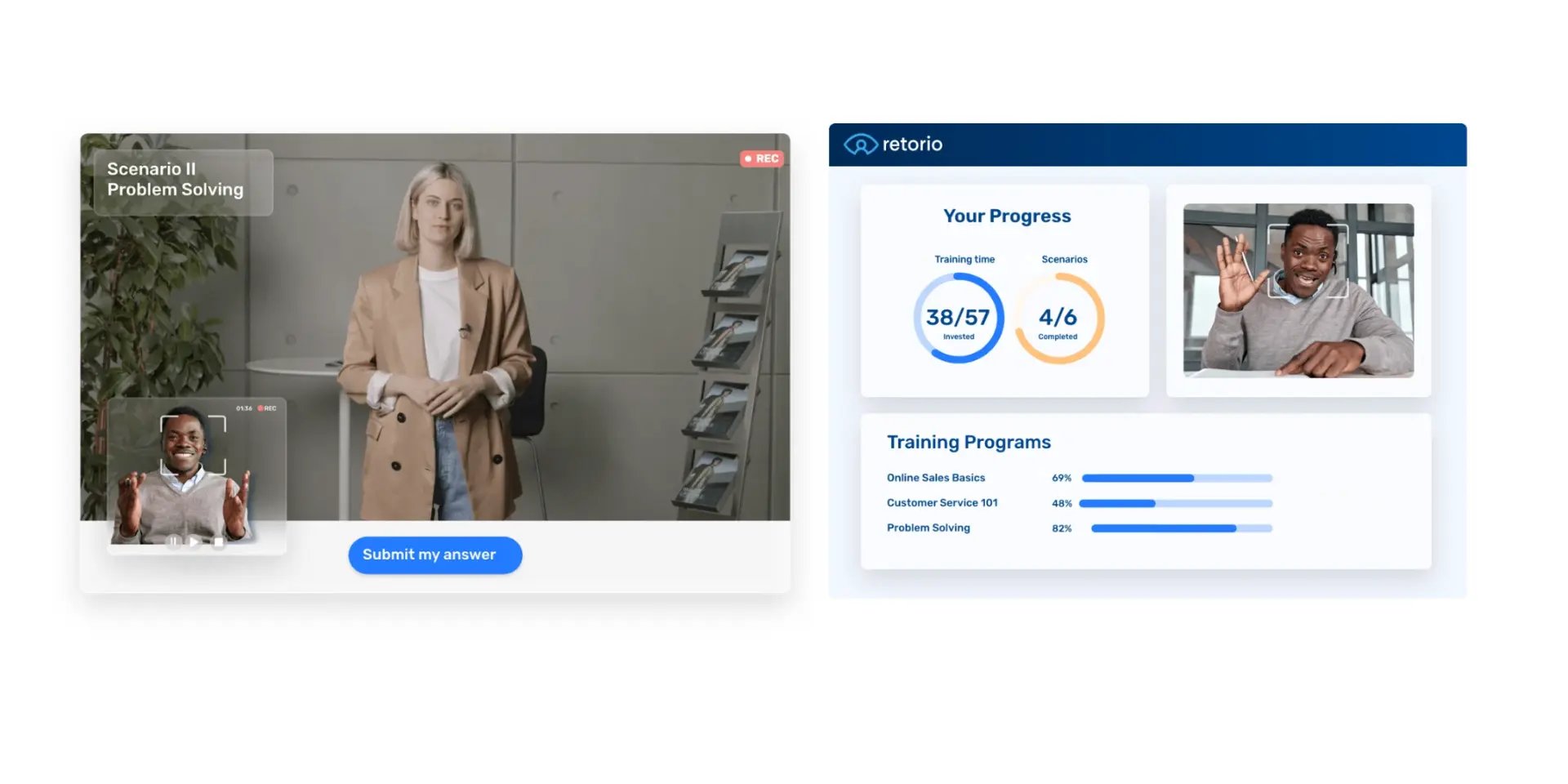When a new employee joins a company, management often experiences a time gap between when new employees enter the company and the beginning of their contribution. During this time, it is the responsibility of management and existing employees to take new hires under their wing and teach them all the necessary skills and competencies needed to succeed in their tasks and become real team members.
However, the downside is that training often takes time and is not a one-time activity. Therefore, if your new employee training program and onboarding process are not clear and structured, the time gap can increase and prevent new hires from becoming acclimated to their roles and cause a ripple of low performance.
New hire training is an investment that companies expect a strong return on investment from. Therefore, businesses need to build a consistent training process that will not only develop competent employees but will also nurture new talent in the long run.
What's in this post:
Why is new hire training important?
The truth about today's workspace is that new hires are ready to leave right when a company does not align with their career goals or they don't feel welcomed into the company culture.
33% of new hires start looking for a new job within the first six months of starting, and 23% of new hires leave their new jobs within a year.
The cost that organizations face from employee turnover has been estimated to be 100-300% of the former new hire's salary.
Conversely, new employees who have experienced a positive onboarding training program are 18 times more committed to their company and employer.
With that being said, here are a few reasons why new hire training is important for organizations:
-
Skill development: Skill development is vital for every new hire as it bridges any skill and knowledge gaps and equips them with the right competencies to allow them to succeed in their roles. It also helps new hires gain confidence in their performance, get to know more about their strengths, and work on their areas for improvement which will ultimately contribute to the company's success. The more skills new hires gain during their training program, the better they will perform and want to stay with your company when they see that their professional development is being invested in.
-
Increase in productivity and work efficiency: New hire training helps organizations to boost overall productivity and efficiency through skill development, and providing them with the skills and information they need. By doing so, new employee training reduces the risk of reoccurring errors, promotes standardized practices, encourages innovation, and minimizes the learning curve. This results in new employees completing their tasks quicker, with fewer mistakes and unnecessary roadblocks which will facilitate a streamlined workflow within teams.
-
Compliance with company policies: training new employees ensures that they become aware of the legal, ethical, and safety standards and know how to adhere to them. Therefore, when new hires are well-versed in the specific regulations of their industry and company policies, companies can avoid facing legal issues or reputational damages which is highly important, especially in today's ever-evolving business landscape.
-
Improves employee morale: New hires want to feel valued in your team, which is why new hire training if done properly, can have a positive impact on employee turnover and morale. New hires will gain confidence in their performance abilities, which will increase their job satisfaction and engagement.

Strategies for new hire training
Having an effective training program will bring your organization far in terms of employee retention and overall success. However, finding the right strategy can be overwhelming. Here are 7 constructive strategies that you can begin implementing when building your new hire training plan and reap the results.
Provide a personalized new hire training program
At this time and age, every training program should be tailored to each employee. No employee is the same, and not every new hire will require the same set of skills and knowledge that the previous new hire had.
Therefore, it is important to have a training needs assessment and an open discussion that will give you insights into the specific learning needs and various learning styles of every employee. This will allow you to provide them with a personalized new hire training checklist that includes the right training materials catering to their development path.
A "one-size-fits-all" approach has become ancient history and "available in a variety of sizes" should be what your company is prioritizing. By having personalized training programs, companies will be able to train new employees effectively and bring forth the best in every team player right from the start.
Allow room for self-discovery
As structured as a new hire training process can be, give them some room and time in their onboarding map to discover their strengths and areas for improvement, and allow them to reflect on it throughout the process. After giving them this time, schedule a check-in session so that they can report back on their findings and learnings, and perhaps discuss how you can alter their training program to fit their needs even better.
Fostering this mindset in them builds trust and transparency in the workplace that allows for managers and new hires to build a strong one-on-one connection to discuss any concerns and development ideas.
Have a 30-60-90 day plan
A 30-60-90 day plan helps to plan and structure the new hire training program much more efficiently. This is what the plan can do for you:
-
Clearly defines and aligns expectations to ensure that every new hire understands what is expected of them in their new role.
-
Clarifies their job description and daily responsibilities. It also includes an overview of what needs to be done and how it can be done.
-
Eases new employees into the company culture and provides them with a concrete overview of what their first few weeks and months at the company will look like and who they can turn to for guidance and support.
Implement on-the-job training methods
The most efficient training methods are the ones where employees get to learn the most that they can. This is where on-the-job training methods come in. On-the-job training methods hold several benefits. However, the main advantage of it is that it bridges the gap between theoretical knowledge and practical application. New hires can learn as they go right from day 1.
New hires receive hands-on experience that allows for faster and more effective skill development through real-life experiences. There are a few ways to adopt on-the-job training methods to your new hire plan:
-
Job shadowing: Introduce your new hire to an experienced employee and have them watch and learn. New hires can take this opportunity to take notes and ask questions based on what they observe.
-
Train together with experienced coworkers: On-the-job training allows new hires to learn from the get-go and wastes no time being lost and confused about how they should perform their tasks. In this case, pair your new hire with a seasoned employee in their field and go through the operations of each task together to receive on-the-spot guidance on what they are doing well, and what they are doing wrong, and get further tips on how to tackle specific tasks more efficiently.
This strategy allows for new hires to also embrace experiential learning, and in turn, gives your company a competitive edge.
Bring in mentors
Mentorship is a valuable tool that every new hire training program should include. Mentors can provide insights into company culture and guidance for professional development. Mentorship creates a psychologically safe space for new hires to feel comfortable in asking questions regarding their roles, and receive ongoing guidance and feedback that is essential for acclimating in the first few weeks.
Introducing new hires to a mentor will accelerate the training process, and allow for faster knowledge transfer. This gives new hires role clarity and increases their job satisfaction.
Moreover, mentors can help organizations cultivate future leaders more efficiently by identifying leadership potential in new hires and guiding them down the right development path.
Educate new hires on your company culture
Your new hire training program is a representation of your company culture: How you treat your new hires is an indication of how you treat your employees.
Help new hires understand how your organization has grown to where it is today, what your company values are, and how you display those values in your everyday life. This is a good way to make them feel welcome and motivated to be part of the team.
Seek feedback from seasoned employees
Your new hire training plan will not stay the same every year. This is because it shouldn't. Ask for feedback on your new hire training program from employees who have experienced it and get their insight into what they enjoyed, what they would have liked to experience, and what they found to be unpleasant.
You can ask them questions such as "What skills do you wish you received training on sooner?", "Which part of the new hire training did you find to be the most challenging?", "What parts of your training were the most critical/important?", or "What would you have liked to experience differently in your training plan?"
Seasoned employees, especially the ones that are in the field as the new hires will know exactly what your new employee will need to succeed.
It increases the level of employee engagement and nurtures employees to feel confident in their contribution to your company's success. Therefore, it is vital to have an effective new hire training program that aligns well with your company's mission and caters to the different learning styles of each individual to promote better professional growth.
Retorio's AI Coaching platform offers organizations an opportunity to avoid investing in the wrong people, and a chance to identify the ones that are aligned with your company culture and nurture their talents.

Retorio's AI Coaching platform can expedite your onboarding process by helping you build personalized training plans for each new hire based on their strengths, areas for improvement, and more importantly - their preferred learning style and pace. Retorio's training platform encourages trainees to unleash their full potential through on-demand learning and learn new skills with AI-powered video role-plays in a psychologically safe space.
Immerse your new hires into the challenges of today to succeed tomorrow.
Sounds too good to be true? Luckily it isn't! Try it out for yourself and see.
FAQ
New hire training typically begins on the first day and lasts between 4-8 weeks. However, it is recommended to have new hire training last from 6-12 months to ensure that every new employee becomes acclimated to their role. Overall, training programs itself should always be ongoing. After the initial onboarding training where new hires develop the skills required for their role, there should be a transition from new hire training to employee training.
New hire onboarding is more of a short-term process to introduce new employees to their colleagues, the company culture, and their responsibilities, while new hire training is an ongoing process for new hires to develop new skills and competencies that will nurture their professional growth and cultivate them into top performers.



